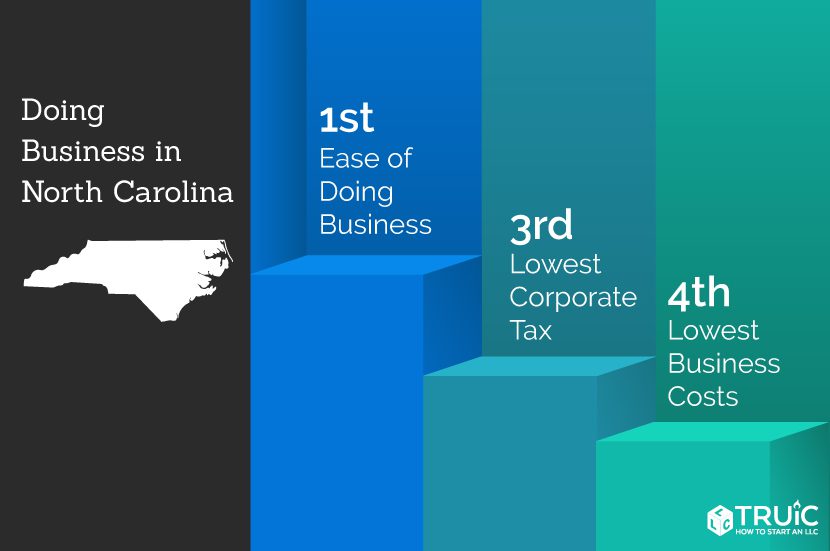If you want to start an accounting business without a CPA, there are a few things you can do. First, look for clients who need your services but don’t necessarily need a CPA. These clients may be small businesses or individuals who have simple tax returns.
You can also offer your services to larger businesses that already have a CPA on staff but may need help with specific projects or tasks. Finally, consider partnering with another professional, such as an attorney or financial planner, who can refer clients to you. By taking these steps, you can build a successful accounting business without the need for a CPA license.
- Research the requirements for starting an accounting business in your state
- Each state has different requirements, so it is important to know what is required of you before beginning the process
- Choose the structure of your accounting business
- You can choose to operate as a sole proprietorship, partnership, limited liability company (LLC), or corporation
- Each has its own advantages and disadvantages, so choose the one that best suits your needs
- Obtain any licenses or permits required by your state to operate an accounting business
- This may include a certified public accountant (CPA) license if you plan on providing accounting services to clients
- Open a business bank account and obtain any necessary insurance for your accounting business
- This will help protect you and your business from potential liabilities
- 5 market your Accounting Business
- Get the word out about your new accounting business by creating a marketing plan and implementing it through various channels such as social media, print advertising, and online directories
How to Start an Accounting Business from Home
Are you an accountant? Do you want to be your own boss? If so, starting an accounting business from home may be the perfect option for you!
Here’s how to get started:
1. Decide what services you will offer. Will you provide bookkeeping, tax preparation, or both?
There is a lot of demand for tax preparers during tax season, so this may be a good option if you want to start small. You can always add bookkeeping services later on.
2. Get the necessary licenses and permits.
Depending on your state, you may need to obtain a business license and/or a professional license to practice accounting. Check with your local government offices to find out what is required in your area.
3. Set up your home office.
You’ll need a dedicated space in your home where you can work comfortably and without distractions. Invest in a good desk, chair, and computer; and make sure your space has plenty of storage for paperwork and files.
4. Promote your business!
Get the word out about your new accounting business by creating a website, handing out flyers in local businesses, or even advertising in the Yellow Pages (if that’s still a thing). Social media can also be a great way to reach potential clients.
Owning Your Own Accounting Firm Salary
As an accountant, you have the potential to earn a high salary working for someone else’s accounting firm. But what if you want to strike out on your own and start your own accounting firm? How much can you expect to earn?
The answer, of course, depends on a number of factors, including the size and location of your firm, the nature of your clients, and the state of the economy. But in general, you can expect to earn a good living as an independent accountant.
According to the Bureau of Labor Statistics, the median annual salary for accountants and auditors was $69,350 in May 2016.
The top 10% earned more than $120,910, while the bottom 10% earned less than $40,230. So there is certainly room for variation in earnings potential within the profession.
Of course, as with any small business owner, there are some inherent risks in starting your own accounting firm.
You may not always have a steady stream of clients lined up, and you’ll need to be good at marketing yourself in order to attract new business. But if you’re willing to work hard and put in long hours when needed (which is often the case during tax season!), then owning your own accounting firm can be a very rewarding experience – both financially and professionally.
What Services Do Accounting Firms Provide
Most accounting firms provide a wide range of services, from bookkeeping and tax preparation to auditing and financial consulting. Here is a closer look at some of the most common services offered by accounting firms:
Bookkeeping: Accounting firms can help you keep track of your finances, prepare financial statements, and reconcile bank accounts.
They can also help with budgeting and cash flow management.
Tax Preparation: Many accounting firms offer tax preparation services. They can help you file your individual or business taxes, as well as resolve any tax issues you may have.
Auditing: An audit is an independent review of your financial statements. Accounting firms can perform audits to ensure that your statements are accurate and free of errors.
Financial Consulting: Accounting firms can provide advice on a variety of financial matters, such as investing, estate planning, and retirement planning.
Starting a Cpa Firm Reddit
There are a few things to consider when starting your own CPA firm. First, you need to determine what services you will offer and what niche you will fill. You also need to create a business plan and find the right partners.
Finally, you need to get the word out about your firm through marketing.
When it comes to services, think about what areas of accounting you are most passionate about and what would benefit your clients the most. For example, if you love working with small businesses, then focus on offering bookkeeping or tax preparation services to them.
If you have experience in auditing or estate planning, then those would be great services to offer as well. Once you know what services you want to offer, research your competition and figure out how you can stand out from the rest.
As for creating a business plan, this is crucial for any new business venture.
You need to map out your start-up costs, operating expenses, marketing budget, and projected revenue. This will not only help you secure funding (if needed), but it will also keep you organized and on track as you launch your firm.
Partners are another important consideration when starting a CPA firm.
You may want to partner with someone who has complementary skillsets or who shares your vision for the business. Finding the right partner(s) can make all the difference in getting your firm off the ground successfully.
Finally, once everything is up and running, don’t forget about marketing!
This is how potential clients will learn about your firm and decide whether or not they want to use your services. Make sure you have a solid marketing plan in place so that people actually know that your firm exists!
Requirements to Open an Accounting Firm
In order to open an accounting firm, there are a few requirements that must be met. First, you will need to obtain a CPA license in the state in which you plan to practice. Once you have your license, you will need to find office space and hire staff.
You will also need to purchase malpractice insurance and bonding. In terms of marketing, you will need to develop a website and create marketing materials. Finally, you should develop relationships with local banks and CPAs.
Accounting Firm Business
No business is too small for an accounting firm. Whether you are a one-person operation or have dozens of employees, working with an accountant can save you time and money. Here’s what you need to know about accounting firms and how they can benefit your business.
The primary function of an accounting firm is to keep track of a business’ financial transactions. This includes recording income and expenses, as well as preparing tax returns. Many businesses also outsource their payroll functions to accounting firms.
There are many benefits to working with an accounting firm, including:
• Save time – Accounting firms can handle all of the financial paperwork for your business, so you can focus on running the day-to-day operations.
• Reduce stress – Dealing with finances can be stressful, but it’s even more so when you’re trying to do everything yourself.
Working with an accountant can take some of that burden off your shoulders.
• Get expert advice – Accountants are experts in their field, so they can offer valuable insights into areas such as cash flow management and tax planning. They can also help you spot potential problems before they become serious issues.
Accounting Firm Business Plan
As an accountant, you know that starting your own accounting firm requires careful planning and a solid business plan. Here are some key points to include in your business plan:
1. Company Overview: Give an overview of your company, including its history (if any), mission statement, and any relevant information about the team or management.
2. Services Offered: Describe the services you offer, including both traditional accounting services and any niche services you may provide. Be sure to highlight what makes your firm unique.
3. Target Market: Who is your target market?
What type of clients do you want to work with? How will you reach them?
4. Marketing Plan: How will you market your firm to attract new clients?
What types of advertising and marketing initiatives will you undertake? Include a budget for marketing expenses.
5. Financial Plan: This is arguably the most important part of your business plan.
Outline your start-up costs, projected income and expenses, and how you plan to fund your business in the early stages. Include detailed financial statements for at least three years into the future.
How Do Accounting Firms Make Money
Most accounting firms make money by charging an hourly rate for their services. This hourly rate can vary depending on the size and location of the firm, as well as the experience level of the accountants who work there. Some firms also offer fixed-price packages for certain types of services, such as tax preparation or financial planning.
In addition, many accounting firms earn revenue from other sources, such as interest on client trust accounts and fees for consulting services.

Credit: online.maryville.edu
Can You Run an Accounting Firm Without a Cpa?
Yes, you can run an accounting firm without a CPA. However, there are certain risks associated with doing so. For example, if you are not a CPA, you may not be familiar with all of the applicable laws and regulations.
This could lead to potential problems down the road. Additionally, your clients may feel more comfortable working with a CPA-affiliated firm. Therefore, it is important to weigh the pros and cons before making a decision about whether or not to become a CPA.
Can You Own an Accounting Firm Without Being an Accountant?
No, you cannot own an accounting firm without being an accountant. The main reason is because you would not be able to provide the services that clients need and expect from an accounting firm. In order to be a successful owner of an accounting firm, you need to have a deep understanding of financial accounting principles and practices.
Without this knowledge, it would be very difficult to provide accurate and reliable services to clients. Additionally, as the owner of an accounting firm, you would be responsible for ensuring that all employees are properly trained and licensed in accordance with state laws.
Can I Start My Own Business With an Accounting Degree?
Yes, you can start your own business with an accounting degree. There are a few things to consider before starting your own business, such as the type of business you want to start, the amount of money you have to invest, and whether or not you have the experience necessary to run a successful business. However, if you have an accounting degree and are willing to put in the hard work, starting your own business is definitely a possibility.
One option for starting your own business with an accounting degree is to become a certified public accountant (CPA). CPAs provide valuable services to businesses and individuals, such as tax preparation and advice, financial planning, and auditing. If you become a CPA, you will likely need to work for another CPA firm before going out on your own; however, this is a great way to gain experience in the field and learn about running a successful accounting practice.
Another option for starting your own business with an accounting degree is to open up your own independent accounting firm. This option may be more challenging than becoming a CPA, as you will be responsible for all aspects of running the business; however, it can also be very rewarding. To be successful in this venture, it is important that you market yourself well and build up a strong clientele base.
Additionally, it is essential that you keep up with changes in tax laws and regulations so that you can provide accurate advice and services to your clients.
Can You Make Good Money As an Accountant Without a Cpa?
There are a number of ways to become an accountant without holding a CPA license. Many accountants choose to specialize in a certain area, such as auditing or tax accounting, and can find positions that pay well without having to obtain a CPA license. Accountants with experience may also be able to move into management roles within their companies, where they can earn higher salaries.
In general, though, becoming a CPA will open up more opportunities for advancement and higher earnings potential.
do you need your CPA to start your own tax and accounting firm? Bookkeeping business startup
Conclusion
If you’re interested in starting your own accounting business, but don’t have a CPA, there are still plenty of options available to you. You can start by offering basic bookkeeping and tax preparation services to small businesses and individuals. With some experience, you can eventually expand your services to include auditing, financial planning, and other specialized accounting services.
While it may take some time to build up your clientele, starting your own accounting business can be a rewarding way to be your own boss and control your own destiny.



